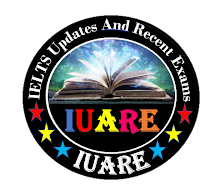24 June 2023, IELTS Exam, General Training, Writing Task 2, INDIA
24 June 2023, IELTS Exam, General Training, Writing Task 2, INDIA
Q.
Some people think that children can learn about history by visiting museums, while others believe that there are better ways to learn about history. Discuss both views and give your opinion.
History is a subject that plays an important role in shaping our understanding of the past and its impact on the present. While some individuals argue that museums provide an effective platform for children to learn about history, others believe that alternative methods can offer better opportunities. This essay will examine both perspectives and present a reasoned opinion.
On the other hand, those who advocate for alternative methods of learning history propose that museums have limitations. They argue that children may find the museum environment dull or overwhelming, diminishing their interest in the subject. Furthermore, museums often focus on a specific period or theme, limiting the breadth of historical knowledge children can acquire. In contrast, alternative methods, such as documentaries, books, and online resources, provide a wider range of historical topics and allow children to explore specific areas of interest in greater depth. Additionally, these methods often incorporate multimedia elements like animations and videos, which can make history more engaging and accessible to young learners.
In my opinion, while museums offer a valuable and immersive experience, they should not be the sole means of learning history for children. Museums provide a tangible connection to the past, allowing children to witness historical artifacts firsthand. However, they do have limitations in terms of scope and accessibility. Alternative methods of learning, such as documentaries and online resources, offer a broader range of historical topics and can be tailored to suit individual interests and learning styles. By combining different approaches, children can gain a comprehensive understanding of history, both in terms of its tangible aspects and its broader contexts.
To
conclude, museums provide a valuable platform for children to learn about history, offering tangible connections to the past and fostering a genuine appreciation for the subject. However, alternative methods of learning history should also be embraced to provide a more comprehensive and diverse understanding. By combining museum visits with other resources, children can develop a well-rounded knowledge of history that encompasses both its tangible artifacts and its broader historical contexts.
👉Click Here For More Recent IELTS Exam Reading Tests




Leave a Comment